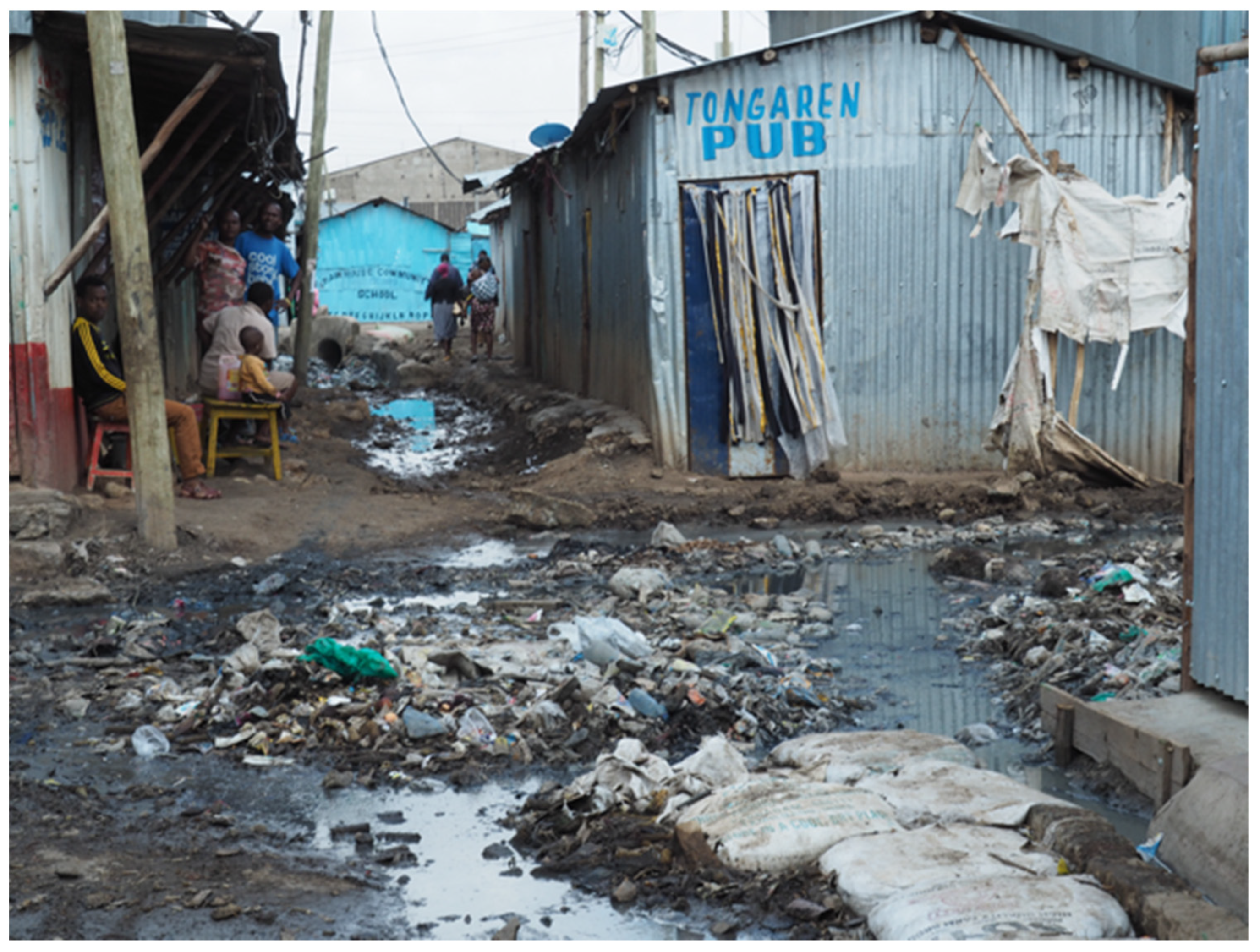
Urban informal settlements are among the most vulnerable places to climate-change-related health risks. Yet, little data exist documenting environmental and human health vulnerabilities in slums or how to move research to action. Citizen science, where residents co-define research objectives with professionals, collect and analyze data, and help translate findings into ameliorative actions, can help fill data gaps and contribute to more locally relevant climate justice interventions. This paper highlights a citizen-science, climate justice planning process in the Mukuru informal settlement of Nairobi, Kenya.
Residents, non-governmental organizations and academics partnered to co-create data-gathering processes and generated evidence to inform an integrated, climate justice strategy called the Mukuru Special Planning Area, Integrated Development Plan. The citizen science processes revealed that <1% of residents had access to a private in-home toilet, and 37% lacked regular access to safe and affordable drinking water. 42% of households were subject to regular flooding, 39% reported fair or poor health, and 40% reported a child in the household was stunted. These and other data were used in a community planning process where thousands of residents co-designed improvement and climate change adaptation strategies, such as flood mitigation, formalizing roads and pathways with drainage, and a water and sanitation infrastructure plan for all.
The processes used to create the Mukuru Special Planning Area redevelopment plan suggest that participatory, citizen-led urban science can inform local efforts for health equity and global goals of climate justice.